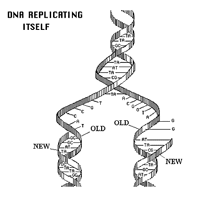While wandering through Google Books, I came across this compelling passage in William Blackstone’s Commentaries on the Laws of England:
In a democracy, where the right of making laws resides in the people at large, public virtue, or goodness of intention, is more likely to be found, than either of the other qualities of government. Popular assemblies are frequently foolish in their contrivance, and weak in their execution; but generally mean to do the thing that is right and just, and have always a degree of patriotism or public spirit. In aristocracies there is more wisdom to be found, than in the other frames of government; being composed, or intended to be composed, of the most experienced citizens: but there is less honesty than in a republic, and less strength than in a monarchy. A monarchy is indeed the most powerful of any; for by the entire conjunction of the legislative and executive powers all the sinews of government are knit together, and united in the hand of the prince: but then there is eminent danger of his employing that strength to improvident or oppressive purposes.
Thus these three species of government have, all of them, their several perfections and imperfections. Democracies are usually the best calculated to direct the end of a law; aristocracies to invent the means by which that end shall be obtained; and monarchies to carry those means into execution. And the ancients, as was observed, had in general no idea of any other permanent form of government but these three: for though Cicero[12] declares himself of opinion, “esse optime constitutam rempublicam, quae ex tribus generibus illis, regali, optimo, et populari, sit modice confusa;” yet Tacitus treats this notion of a mixed government, formed out of them all, and partaking of the advantages of each, as a visionary whim, and one that, if effected, could never be lasting or secure.
It is likely that the founders of our constitutional government had this in mind when planning our legal framework. In the United States, these three attitudes exist in a state of tension: the will of the people vs. the wisdom of the elite vs. the authority of the monarch (monarchy is literally the rule of one). The authority of the monarch is represented by the President and the Executive Branch. The will of the people is represented by the Legislative Branch with its representative bodies. The wisdom of the elites is represented by the Judicial Branch. The system of checks and balances ensures that each branch possesses some influence over each other branch and allows for a dynamic tension that can respond to change.
Maybe this tension is responsible for our success and relative stability. This dynamic tension allows each tendency to influence events when it is most needed. When the public Will grows new laws can be promoted by the legislature to change policy, when authority is required the President can exercise his particular advantage, when wisdom and judgment is necessary to arbitrate, the judiciary can make decisions independent of the public will or the authority of the executive. The genius of our political system is that it provides a stable framework for this tension and recognizes at a basic level that society is both cooperative AND competitive.
 Life started out with a limited ability to create new versions with significant variation. In the beginning, presumably only a handful of different organisms existed (maybe even an ur-lifeform, or grandfather organism) and these tended to be unicellular with minute amounts of genetic information. As life forms evolved and grew more complex, they
Life started out with a limited ability to create new versions with significant variation. In the beginning, presumably only a handful of different organisms existed (maybe even an ur-lifeform, or grandfather organism) and these tended to be unicellular with minute amounts of genetic information. As life forms evolved and grew more complex, they  One thing that’s difficult in search engine marketing is finding good data on search traffic: how often a keyword phrase is searched, how one keyword phrase compares to another in total search volume, how well your competitor is doing relative to you, etc. There’s no real way to get this from the search engines in any usable form as this is essentially their secret sauce. Google has a service called
One thing that’s difficult in search engine marketing is finding good data on search traffic: how often a keyword phrase is searched, how one keyword phrase compares to another in total search volume, how well your competitor is doing relative to you, etc. There’s no real way to get this from the search engines in any usable form as this is essentially their secret sauce. Google has a service called